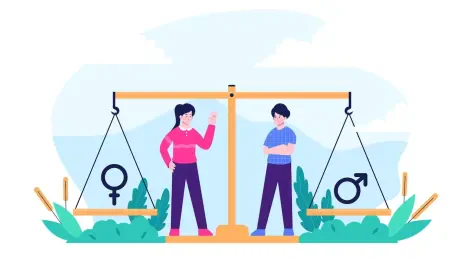Why does legal gender equality remain a distant dream for many in the 21st century? Despite global advancements, 2.5 billion women are still without equal rights under the law. Consider a woman living in a country where she cannot work the same jobs as her male counterparts, unable to inherit property or pass her nationality to her children. This isn’t a dystopian future—it’s the harsh reality facing millions today, suggesting urgent questions about the achievable timeline for full legal equality.
Grappling with Global Legal Inequality
Across the globe, women and girls confront restrictive laws that hinder their daily lives. These disparities touch various aspects such as employment, education, and citizenship. They fuel economic imbalances and interfere with successful conflict resolution and basic human rights observance. Achieving legal equality by the decade’s end could have transformative effects on ensuring sustainable development and progress in these areas.
Unveiling the Challenges of Legal Reform
Legal inequality manifests prominently in labor laws, family regulations, and nationality constraints. Many of these discriminatory laws are remnants of outdated systems that continue to exert profound societal harms. However, countries like Kyrgyzstan illustrate that change is feasible. By reforming over 400 job-related discriminations, Kyrgyzstan showcases the potential impact of meaningful legal reform in fostering enhanced economic and social conditions.
Voices from Influential Figures
Expert opinions strongly advocate for immediate legal reforms. At the UN High-Level Political Forum, thought leaders emphasized fast-tracking reforms. Insights from the World Bank and UN Women illustrate that legislative changes not only advance equity but also economic growth. Spain and the Philippines exemplify ongoing journeys toward eradicating discriminatory laws, underscoring the importance of determined action and data-driven policies.
Strategic Initiatives for Achieving Equality
A roadmap for achieving legal gender parity by 2030 includes bold legal reforms and strategic collaborations. Inspired by initiatives like UN Women’s Equality in Law strategy, stakeholders are encouraged to embrace data-driven policymaking and gender-sensitive fiscal planning. Effective reform demands coordination among governments, civil societies, and international agencies, ensuring that equality is not merely aspirational but actionable.
Creating a Path Forward
Achieving gender equality under the law demands more than ambition; it requires commitment and collaboration. By collectively pursuing comprehensive reforms and supporting grassroots movements, a world can be envisioned where legal standards reflect equitable rights for all. The future of gender equality lies in taking decisive steps today—ensuring that gender equality under the law can shift from the realm of hopeful aspirations to tangible reality.









